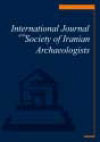An Archaeological Study of the Tokens from Tepe Zāgheh, Qazvin Plain, Irān
Author(s):
Abstract:
The study of circumstances surrounding the development of record-keeping for information purposes, and of what these records looked like in prehistoric human societies has always been of significance in archaeological research. Such research is important because it relates to the beginnings of the use of accounting which came to be one of the main elements of institutionalized management and bureaucracies under urbanization and in historical periods. Tepe Zāgheh is one of the key sites during the transitional period from Neolithic to Chalcolithic period in the Qazvin Plain, having provided a considerable collection of tokens (counting objects) in addition to various other pieces of the archaeological evidence discovered in the excavations carried out there. Thus 238 Zāgheh tokens were available for typological study and theoretical analysis. The principal goals of this paper are to re-identify accounting and reckoning systems at Tepe Zāgheh and to identify the evolutionary stages of these systems in Zāgheh. It is apparent from implemented studies that Zāgheh society had an early form of accounting system for keeping track of farming products and of animal counts, and that tokens were the principal devices used in this process.
Keywords:
Language:
English
Published:
International Journal of the Society of Iranian Archaeologists, Volume:1 Issue: 2, Summer-Autumn 2015
Pages:
28 to 40
https://magiran.com/p1590813


